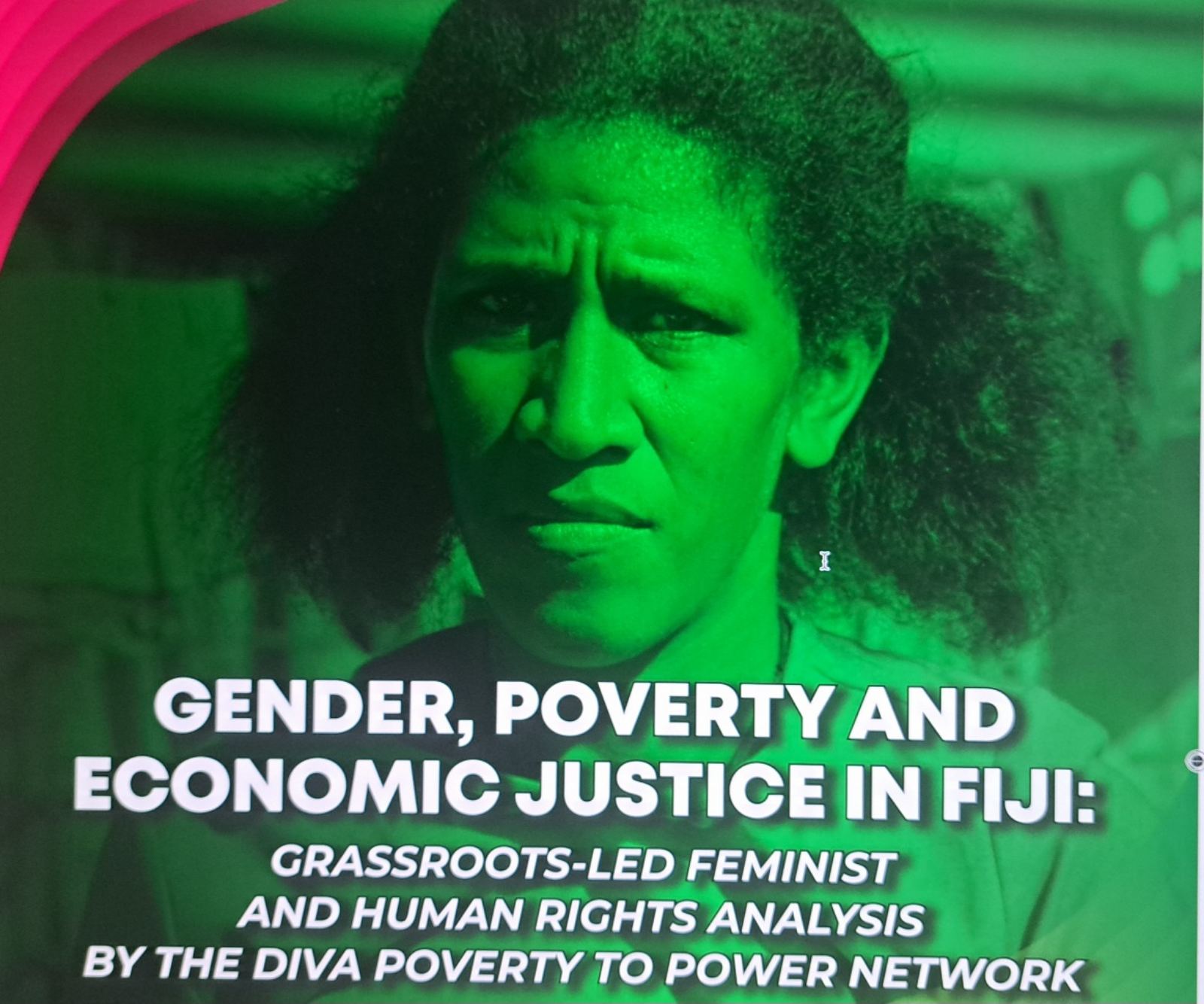The only girl in a family of four to a single mum, Naomi Vuni struggled from childhood. An uncle who was returning from a grog session stepped on her leg when she was five years old, leaving her disabled. Growing up in poverty, she endured discrimination and sacrificed for her education, then her children’s when she got married. She was called names including “yava qelo’. Her husband’s death left her family in dire straits, and her eldest son, upon bringing a girl home, chased her away and left her without a cent. She moved in with her mother and one of her brothers in the village. Despite setbacks, Naomi remains resilient, finding support through DIVA for Equality to help others including via her role as the secretary for Tailevu South Disabled Association. Her mantra, “I always feel that even if you are mistreated, you don’t have to repeat that treatment to others.’
Vuni’s story is among those documented in a recently launched booklet titled ‘Gender, Poverty and Economic Justice in Fiji: Grassroots-Led Feminist and Human Rights Analysis’. Authored by ‘The Diva Poverty to Power Network’, the 72-page booklet outlines similar narratives from 22 women facing poverty and economic injustice in Fiji.
In a statement, DIVA for Equality stated the booklet underscores the burden of unpaid care, domestic, and communal work disproportionately carried by women in all their diversity, and throughout their lifetimes. The publication, DIVA for Equality says, serves as a call to action to include women in decision making and use better analysis and action to end poverty and build social, economic, ecological and climate justice for all.
“As with most states, Fiji yet fails to recognise or address this pervasive issue, leaving a majority of working-age women and particularly elderly women vulnerable to economic insecurity and poverty – what is termed feminisation of poverty.
“There needs to be both everyday and systemic changes to our society and State, in order to end poverty in Fiji. Fijian feminist activists advocate for a paradigm shift, urging the State and society to adopt a comprehensive 5R or 6R framework to construct a fairer social provisioning system and care economy.”









